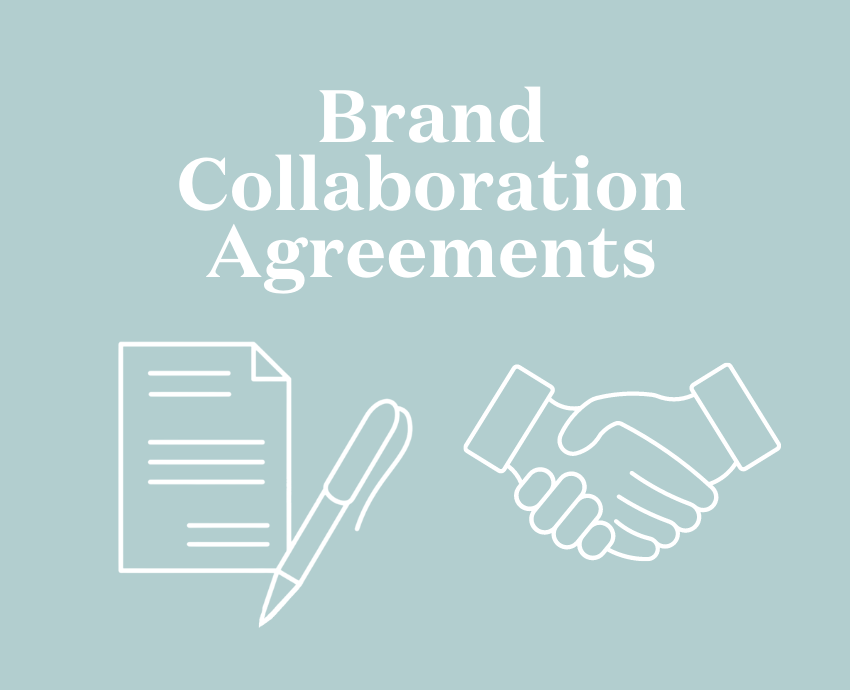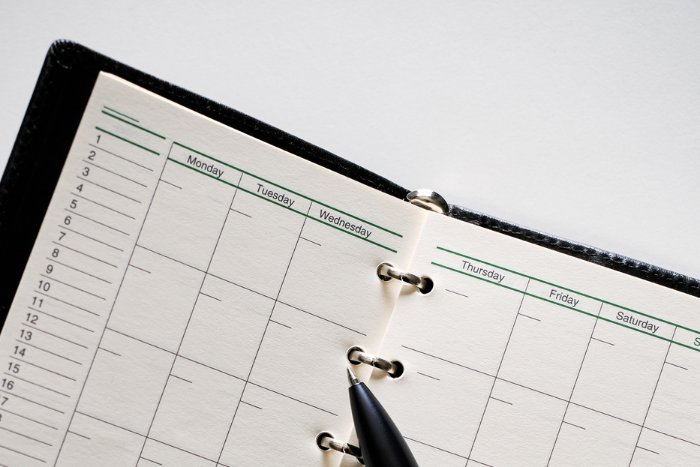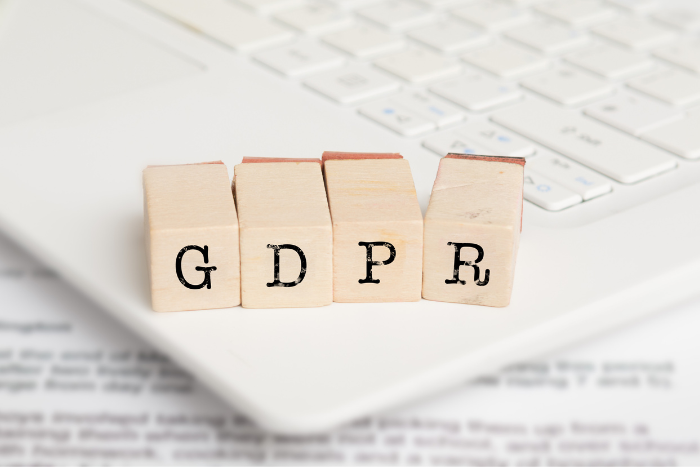Collaboration Agreements
Barbara Neilan, BridalBuyer.com’s business law expert, discusses the importance of retail partnerships and key questions that should be addressed in a collaboration agreement.
We’re taking a slightly different tact this month, and focusing on sharing your business venture with another person…
Stunned silence. Hear me out.
I’m not talking about giving your business away or allowing someone to run off with your business (if you caught my article on trademarks, you know this isn’t how I roll!)
I’m talking about choosing to collaborate with another business owner, or maybe an influencer, to help grow and scale your business with the help of others.
Why is it that, after speaking with someone for what is basically 0.3 seconds in the business world, we’re always so ready to jump head-first into collaboration relationships without thinking about the fine print?
We like them. We trust them. They wouldn’t harm us.
Firstly, we all know deep down that this isn’t always the truth and, in the business world, can be a bit naïve.
But secondly, if we all like and trust each other right now, surely now is the time to get the collaboration agreement in place? Hopefully, you never need it, hopefully it’s just paperwork that’s stored on your computer and taking up space.
But you might need to fall back on something formal. And remember – it’s your job to protect your business. It’s your baby.
Let’s get into the nitty gritty.
What is a collaboration agreement?
Well, fundamentally, I’m talking about any arrangement where one business owner chooses to work with another business owner to, hopefully, between them create some wealth and attention in the market.
I’m not talking about setting up a company or a partnership together. That’s a long term, more formal ‘deal’, and you need a shareholders agreement or a partnership agreement for that. This is outside the scope of this article.
So, what kind of ventures fall into the ‘collaboration camp’?
- A dress store and a shoe store working together to promote each other to their customers, each getting a cut of the other’s takings when they’ve been referred by them (more like an introducer-referral arrangement).
- Two bridal industry brands coming together for a one-off promotion that involves offering a ‘package’ of services to customers. This could be product-related, or more about the experience, such as photographers and videographers offering their services to customers as a ‘package deal’.
- Working with well-known names to promote your brand on social media (an influencer relationship).
These arrangements are all collaborations in their own way!
So, what are the first steps?
Firstly, get this on paper. Do it yourself and have a solicitor review it to make sure you’re on the right lines (and not signing up to anything scary!) or ask a solicitor to draft it for you. This will depend ultimately on your budget and time available.
You then need to consider the seven key aspects of the collaboration that need to be addressed:
- Who is responsible for what?
- Are there deadlines?
- What happens if one person lets the side down, in terms of missing deadlines or producing poor quality work?
- How do the finances work? Where is the revenue paid into, and who is responsible for expenses? Is the arrangement based on a 50/50 split of all profit, or should it be different to reflect the fact that someone is planning to contribute more or less effort?
- Who owns the intellectual property in the collaboration, e.g. social media posts and general advertising. Do you both own all these promotional materials between you?
- Should there be non-competes in there? If you’re a photographer working with a videographer, is it important to you that the videographer works with you and only you?
- How long do you plan to collaborate for? Is this on an ongoing basis or a one-off project?
This is the kind of list that’s perfect for a brainstorming session between the collaborators and is the information that forms the detail of your collaboration agreement. Once you have this all jotted down, stick this in a collaboration agreement yourself, or send it to a solicitor to do it for you.
Let’s recap on why this is important.
Collaborating can be a really handy tool to leverage the success of others in a particular market to promote your own business, or to allow you to add another string to your business bow when pitching to customers.
But while this is fantastic from a business revenue perspective, it is extremely important from the perspective of protecting you and your business that you go into such an arrangement with your eyes open to ensure that you have all bases covered, and you’re not overly exposing your business to risk.
Remember, working with other people is great, but without a proper collaboration agreement in place, it’s success is outside your control.
How can we contact you to find out more?
At Jamieson Law, we pride ourselves on helping small businesses understand their legal obligations and trying to make everything that bit less daunting. This includes fixed fee contract reviews and contract drafting services.
If you feel like you could benefit from some one-to-one advice on your collaboration agreement, or any other legal matter, please take advantage of our free 15-minute legal advice calls.
These are not sales calls; just our way of giving back to the business community. You can book a slot here.













